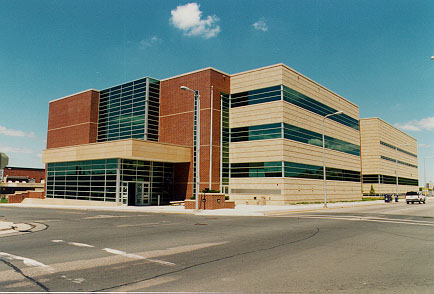-
HOW DO I
Apply For
Find
Pay
Water Testing

-
RESIDENTS
Health & Wellness
Senior & Assisted Living
Environment
Families & Individual Support
Financial Assistance
Library
Safety & Justice
Broadband

-
BUSINESS
Community Development
GIS Mapping
Ordinances
Requests For Proposals
Start A Business
Zoning, Planning & Land Information
Broadband

-
VISITORS
Campgrounds & Shelters
Downtown Guide
Hunting & Fishing
Parks/Facilities
Explore La Crosse

-
YOUR GOVERNMENT
County Board
Ordinances
Resolutions
Elections
Elected Officials
State
Facilities
Municipalities: Cities, Villages and Towns
- CITY OF LA CROSSE
- CITY OF ONALASKA
- TOWN OF BANGOR
- TOWN OF BARRE
- TOWN OF BURNS
- TOWN OF CAMPBELL
- TOWN OF FARMINGTON
- TOWN OF GREENFIELD
- TOWN OF HAMILTON
- TOWN OF HOLLAND
- TOWN OF MEDARY
- TOWN OF ONALASKA
- TOWN OF SHELBY
- TOWN OF WASHINGTON
- VILLAGE OF BANGOR
- VILLAGE OF HOLMEN
- VILLAGE OF ROCKLAND
- VILLAGE OF WEST SALEM
School Districts



La Crosse County
Law Enforcement Center
333 Vine St - Suite 1730
La Crosse, WI 54601
fax: 608-793-6517
office: 608-785-9638
Non-office hours and
Emergency: 608-785-9634
email:
Medical Examiner Office
 | Medical Examiner |
Donations
There are two types of donations: organ and tissue.
For organ donation to occur, the patient must be in a hospital on a ventilator and have been declared deceased due to loss of brain or cardiac function. The organs must be quickly recovered, properly preserved and transplanted quickly. Organs must be carefully matched to waiting recipients. Matching is done according to factors such as blood type, medical status of the recipient and size of the waiting recipient. There are eight organs that may be transplanted: heart, lungs, liver, kidneys, pancreas and small intestine.
Tissue donation occurs in the first 24 hours after the heart has stopped beating. The tissues can be preserved and used at a later date. Consequently, there are many more potential tissue donors than organ donors. Tissue recipients do not have to be matched to their donors, as rejection is not generally a concern. Donated tissue is used to treat burn patients, serious abrasions, hernia repairs and in reconstructive surgeries for patients such as breast cancer survivors. Bone is used in orthopedic surgeries to facilitate the healing of fractures or to prevent amputation. Heart valves are used to replace defective valves. Tendons are used to repair torn ligaments on knees or other joints. Veins are used in surgeries. Corneas can restore sight to the blind.
For more information contact one of the organizations below.
 |  |  |
| www.donatelife.net | www.donatelifewisconsin.org | www.rtidonorservices.org |
Donate Life Tissue Donation brochure
© 2025 La Crosse County. All Rights Reserved.
